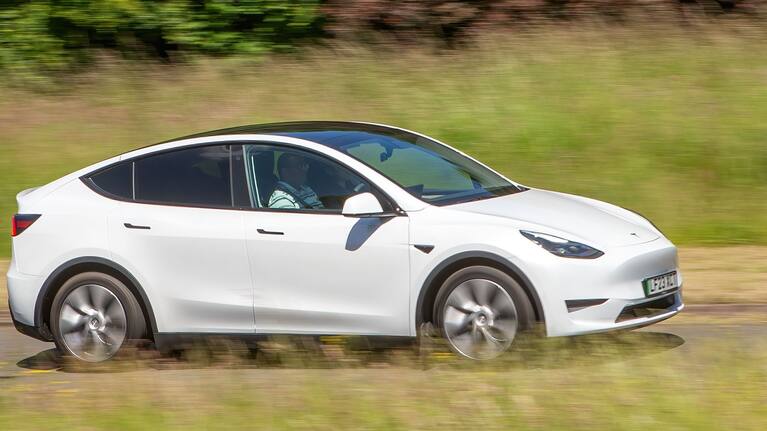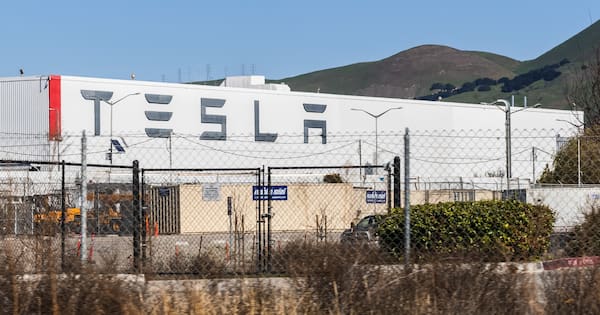Elon Musk’s car company Tesla reported it sold more vehicles in the past three months after boycotts hit hard earlier this year – but profits still fell sharply.
Third-quarter earnings at Tesla fell to US$1.4 billion (NZ$2.4 billion), or US$0.39 a share, from US$2.2 billion (NZ$3.8 billion), or US$0.62 a share, a year earlier.
That marked the fourth quarter in a row that profit dropped.
Excluding certain charges, earnings were US$0.50 per share, down from US$0.72 per share a year ago and below the US$0.56 forecast by Wall Street analysts.
Revenue rose to US$28.1 billion (NZ$49 billion) from US$25.2 billion (NZ$43.9 billion)in the June through September period, beating Wall Street’s forecast.
Tesla shares fell 1.8% to $431.23 in after-hours trading

Financial analysts have been upping their estimates of revenue since Musk announced earlier this month that sales of electric vehicles, one part of the multipronged business, rose 7% in the quarter after plunging for most of the year.
The sales were boosted by customers rushing to take advantage of a US$7500 (NZ$13,000) federal tax credit for those EV purchases before it expired on October 1, possibly stealing sales from the current quarter.
Tesla was also helped by surging sales from its separate battery storage and electric charging businesses, but the EVs still make up much of the overall revenue figures.
“It’s a positive that they are increasingly diversifying from the auto business, but our primary concern is demand for EVs,” said Garrett Nelson, an analyst at CFRA Research who has a “sell” rating on the stock.
“There’s a lot of uncertainty.”
A much-watched measure, gross margins, hit 18%, the highest for this year but still down from the third quarter a year ago.
The figure, which shows how much money Tesla makes after paying staff, raw materials and other basic expenses, are also down from 25% four years ago as the company offers discounts and other incentives to fight back against rival EV makers that have been stealing market share.
Musk was predicting 20% to 30% sales growth for 2025 at this time last year, but it hasn’t turned out that way.
In addition to alienating potential customers with his embrace of right-wing politicians, sparking boycotts in key markets in the US and abroad, he also has failed to shake up his vehicle lineup with a new, exciting model or introduce a substantially cheaper car to appeal to more buyers.
When he finally did reveal two cheaper offerings earlier this month — stripped-down versions of the Model Y and Model X — investors were unimpressed because the discount didn’t seem deep enough.
They both cost slightly less than US$40,000, much higher than expected.
One Musk watcher on Wall Street was undeterred by the quarterly report.
“It’s nice to have revenue come back,” said Brian Mulberry, a senior client portfolio manager at Zacks Investment Management. “There is still strong demand for Teslas.”

